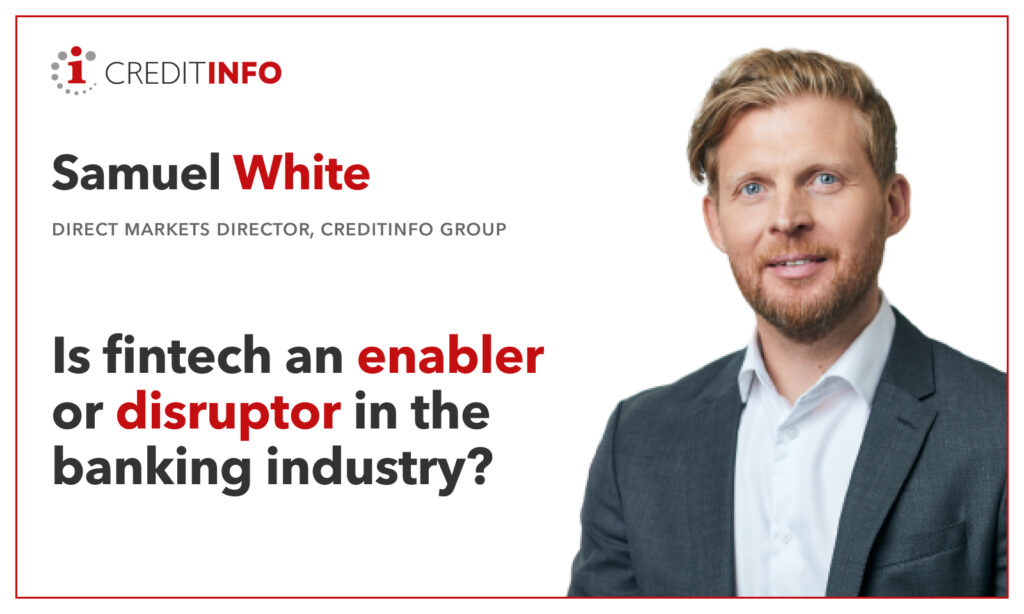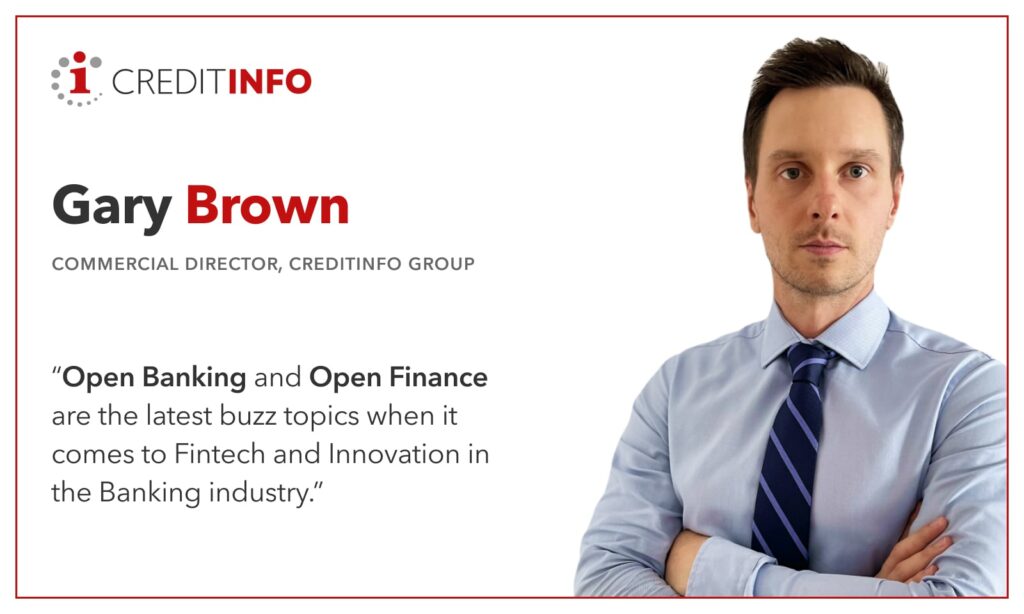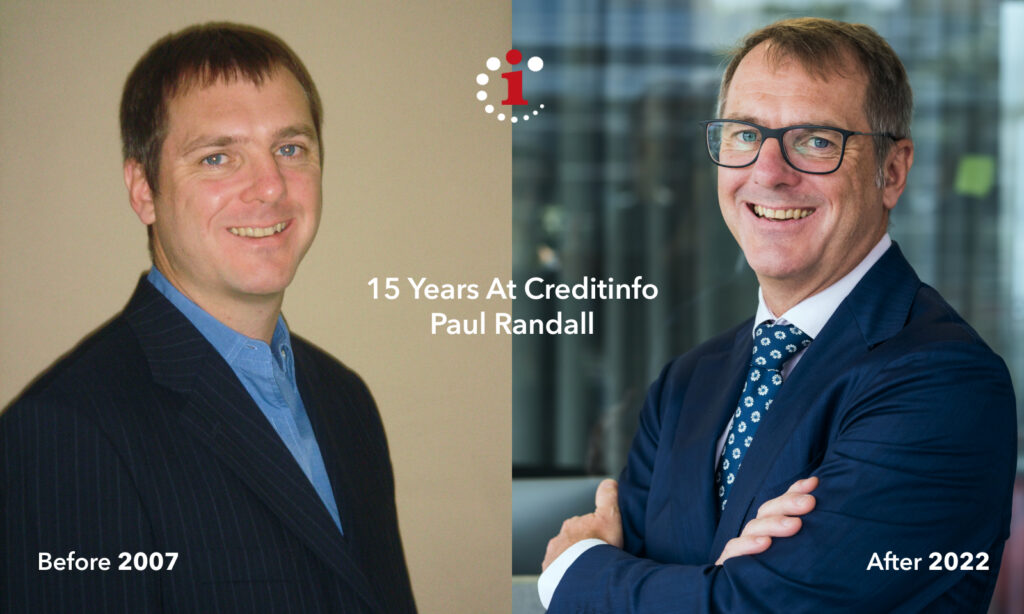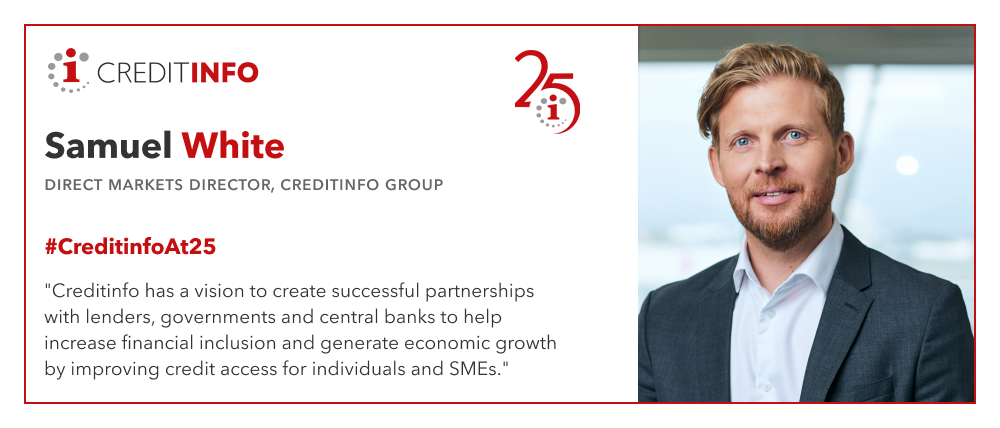ESG and the Banking Industry: Why Sustainability Matters

As the world grapples with environmental and social challenges such as climate change, social inequality, and governance failures, the importance of ESG (Environmental, Social, and Governance) considerations has never been more apparent. For banks, ESG is becoming an increasingly important aspect of doing business, as it can help to manage risks, enhance reputation, meet regulatory requirements, drive innovation and increase access to capital. In this blog post, we’ll explore each of these points in more detail.
- Risk management: ESG risks are significant and multifaceted, ranging from physical risks such as climate change-related natural disasters to transition risks stemming from legal and policy risks from greenhouse gas emissions and governance or social issues such as human rights abuses. By integrating ESG considerations into their risk management frameworks, banks can better anticipate and manage these risks, which can have a positive impact on their financial performance. For example, banks that fail to properly assess and manage climate-related risks could face stranded assets or lawsuits, which could impact their bottom line. Regulatory frameworks in Europe have taken note of this and the European Banking Authority now requires banks to disclose multiple data-points regarding ESG risks in their risk reports (Pillar III).
- Reputation: ESG is increasingly important to customers, investors, and other stakeholders who want to see banks acting as responsible corporate citizens. Banks that take ESG seriously and demonstrate their commitment to sustainability and social responsibility are more likely to attract and retain customers, as well as to access funding from ESG-focused investors. For example, a bank that invests in renewable energy projects or supports social programs in its local community is likely to be viewed more favorably than a bank that does not prioritize ESG. Mismanaging ESG factors to increase reputation may have negative effects, which became evident in some high-profile cases in 2022, both in the EU and US.
- Regulatory pressure: Regulators around the world are increasingly focusing on ESG issues and requiring banks to integrate these considerations into their business practices. For example, the European Union has introduced regulations such as the Sustainable Finance Disclosure Regulation (SFDR) and the Taxonomy Regulation, which require banks to disclose ESG-related information and align their investments with environmental objectives. Banks that fail to comply with these regulations could face fines or other penalties, which could impact their financial performance, reputation, and limit access to capital.
- Innovation: Banks that prioritize ESG are more likely to drive innovation and develop new products and services that address environmental and social challenges. By supporting the transition to a low-carbon economy and promoting social inclusion, banks can help to create a more sustainable and equitable future. For example, a bank that issues green bonds or sustainable investment products can help to finance renewable energy projects or other environmentally beneficial initiatives, potentially at better rates. Similarly, a bank that offers financial services to underserved communities can help to promote financial inclusion and social equality.
- Green bond issuance offers several benefits for banks, such as accessing a growing pool of socially responsible investors, improving their reputation as sustainable financial institutions, and supporting the transition to a low-carbon economy. The growth of the green bond market has been impressive, with a record-high issuance of $269.5 billion in 2021, up 4.6% from 2020. The cumulative issuance from 2007 to 2021 surpassed $1.5 trillion, with the US, China, and France being the largest issuers. The increase in green bond issuance is driven by investor demand and regulatory measures promoting sustainable finance.
In conclusion, ESG considerations are becoming increasingly important to the banking industry to manage risk, enhance reputation, meet regulatory requirements, and drive innovation. Banks that prioritize ESG are likely to be better positioned for long-term success, as they can help to create a more sustainable and equitable future for all stakeholders. As individuals, we can also play a role in promoting ESG considerations by supporting banks and financial institutions that prioritize sustainability and social responsibility. By working together, we can help to build a more resilient and sustainable global economy.
This may be one of the most important feature of ESG in banking, where the green bond space has grown exponentially over the last years.
By Gary Brown
Head of Commercial Development – Creditinfo Group.
Creditinfo Partners With VisionFund International to Provide Analytics and Automation Solutions

Creditinfo Group, the leading global service provider for credit information and risk management solutions, today announces a multi-market partnership with VisionFund International to provide analytics and automation solutions throughout their global Microfinance Network.
Creditinfo’s credit risk analytics and automation solution will help VisionFund to expand their customer base whilst controlling costs. This will enable VisionFund to increase financial inclusion and improve economic conditions for lower income clients around the world.
Creditinfo will draw upon its global and regional experts to support the implementation of these solutions over a three-year period. Initially, Creditinfo will provide its solutions to six of VisionFund’s markets with a view to extending them to additional VisionFund’s markets in due course.
Paul Randall, CEO at Creditinfo said: “We are delighted to have been selected by VisionFund International to provide IDM Decision Automation solution to their global network of MFIs (Microfinance institutions). Our understanding and experience of working across over 20 markets is strongly aligned with VisionFund’s experience as one of the largest multinational networks of MFIs with its operations spanning 28 countries and reaching over 1 million active customers. We are excited about the journey ahead and helping VisionFund realize its goal of enabling clients to grow their livelihoods and secure their futures.”
Karen Lewin, Director of Credit Risk at Vision Fund International said: “With Creditinfo’s solution, we will increase our outreach, and improve both lending efficiency and our credit risk assessment capabilities, to better meet the needs of all our customers. Creditinfo’s team of global and local experts will provide us with the level of support we need to achieve these goals and increase financial inclusion in the markets where we operate.”
For information visit www.creditinfo.com
Kredītinformācijas Birojs and Citadel Bank Sign an Agreement to make It easier for Ukrainian citizens to receive Financial Services

It has already been reported that last year the “Credit Information Bureau” of Latvia (KIB) concluded an agreement with the “International Credit Information Bureau” in Ukraine ( Мидрождение бюро кредитних історий ) on the exchange of credit history data of Ukrainian nationals.
JSC “International Bureau of Credit Histories” launched the chatbot “MBKI online” in order to provide Ukrainians and migrants from Ukraine with access to their credit histories.

Lending is one of the main elements of the modern financial system. In one way or another, most people rely on loans from banks – whether these are credits, mortgages, installments, credit cards to pay for critical goods and services. An important role in this process is played by credit bureaus that collect, store, process and transmit information on borrowers’ payment discipline, credit scoring and current obligations.
However, when people move to a new country or are forcibly evicted from their homes due to occupation or fleeing war – this is what many Ukrainians are currently experiencing – it becomes much more difficult to access financial and other services. This unfortunately disadvantages refugees and adds to the problem regardless of whether they had good or bad credit history before.
Aiming to resolve issues related to solvency confirmation of the tenant from Ukraine and checking the credit history of Ukrainians when applying for a loan or employment, JSC “IBCH” (one of the largest Credit History Bureaus in Ukraine, a member of the international Creditinfo Group since May 2021) created the “MBKI online” chatbot.
For more than 16 years IBCH (Creditinfo Ukraine) has been cooperating with the largest banks and non-bank financial institutions, including foreign financial institutions and credit bureaus of other countries. The organization is now focusing its attention on supporting Ukrainians, both in Ukraine and abroad, with getting access to credit reports.
Kateryna Danylchenko, CEO of JSC “IBCH” (Creditinfo Ukraine), stated, “Since the beginning of the war in Ukraine, over 6 million people – including myself, my fellow colleagues and partners– have been forced to leave the country at short notice with no idea if or when they will return. Displaced Ukrainian refuges face a whole host of challenges without necessary documentation or access to registries. While JSC “IBCH” (MBKI, Creditinfo Ukraine) became the first Ukrainian bureau to launch cross-border data sharing with bureaus from 5 countries, it is also important to assure easy and mobile direct-to-consumer gate to credit history reports. “MBKI online” is so important in helping Ukrainians staying in country and abroad gain online access to their credit histories (also in English), so they can prove their ability to make payments on time to landlords or new employers, follow their credit history updates and bureau score change, as well as to report about lost identification documents.”
“Creditinfo was set up to aid financial inclusion through making credit information more easily accessible and digestible for borrowers and lenders.” – comments Paul Randall, CEO Creditinfo Group. “I’m so glad that there’s something practical we’ve been able to do to help Ukrainian refugees across Europe to access financial services. The creation of this chatbot is an important development in our journey to make the lives of everyone forcibly displaced by this war that tiny bit easier.”
The “MBKI online” chatbot, available on Viber and Telegram, gives Ukrainians access to their own credit history and offers an easy way of identification including using BankID.
Chatbot enables the customer:
• To get a certificate about credit history (in Ukrainian and English);
• To find out personal credit score;
• To get answers to basic questions about credit history;
• To inform the Bureau about the loss of a passport or other identity document;
• To ask for a loan and find out available offers.
Chatbot accepts different payment methods (including bank card, Apple Pay and Google Pay). For more information and to start working with the service, follow the link: https://credithistory.com.ua/bots/
The fintech movement in the banking industry

Is fintech an enabler or disruptor in the banking industry? Fintech the new technology that improves and digitalizes the delivery and services of the banking industry. These solutions can include software helping connect with customers, businesses, and banks through agile processes to manage financial services better. Or better use of data to offer a more personalized and customer centric offering.
The lending landscape has gone through some major changes in recent years, and this shift does not appear to be slowing down. Based on the latest information from the World Bank, about 76% of adults have a bank or mobile account, this is up from 51% in just over a decade. The rise of mobile money solutions, which allow users to turn their smartphones in digital wallets and use it to pay for services, have played an important role tapping into the unbanked segment and supporting this improvement.
Fintechs are realizing the opportunities to disrupt the challenges faced by traditional banking and offering new solutions that better suit the needs of customers and businesses. By embracing technology, fintech companies can collect and store more data on customers so they can offer personalized solutions with greater choice of products. Unlike traditional banks, fintechs can move with speed and deliver digital solutions improving the user experience.
The increase in fintech players has increased competition between traditional banks and fintechs. Traditional banks are paving the way to collaborate with fintechs while others are implementing teams to focus on in-house projects. Older generation customers may value trust over the latest trends and will therefore remain loyal customers to traditional banks., However, younger generations will demand more and swifter solutions because that is what they are familiar with. Traditional banks embracing fintech solutions will see them provide the flexible solutions that customers are looking for.
One of the biggest reason the banking industry has adapted to fintechs, is due to their ability to connect with customers 24/7 through an omnichannel approach. This not only increases customer reach and convenience but also allows banks not to rely solely on customers visiting a branch.
It is expected that we will continue to see changes in the banking industry for years to come, the speed of change will depend on how much and how fast customers continue to adapt to fintech solutions. It’s clear, traditional banks are no longer the monopoly in this industry, with more digital banks, neo– banks and new players such as telcos and payment companies entering the lending landscape. Nobody is expecting the traditional banks to be replaced but it is likely that banks and fintechs partnering with one another will allow the traditional banks to enhance technologies and by coming together both the fintechs and the banks can benefit in this highly competitive market.
Samuel White,
Direct Markets Director, Creditinfo Group.
Evolution of customer onboarding and risk assessment

This year, Creditinfo celebrated its 25-year anniversary, so I decided to look back on how the landscape in effective credit risk management has evolved.
While it was a little before my time, I’m sure there are still many people today who remember that the only way to open a bank account, apply for a loan or to be considered for a mortgage was to visit your local branch and sit with a loan officer. Though, this is still the case in many emerging markets even today, there will be some small differences on the data used and the risk assessment criteria that is in place.
Historically, a visit to the branch would involve meeting a loan officer who would then try to understand your circumstances before making an approval. If there was a past relationship or a connection (family member, friend, etc) with the loan officer, this would usually work in your favor. It was a direct relationship that usually lasted a lifetime. The loan officer would know or at least try to understand as much personal information on your employment, income, and expenses as possible and then would make a personal judgement to provide you with a form of credit. All of this was most likely completed and documented on papers and filed into a filing system for record.
Fast forward a few decades and not only are local branches disappearing, but also the idea of sharing personal information with a “stranger”, along with any supporting documents that validate your circumstances are a thing of the past. In a world of smartphones, tablets, and access to the internet 24/7, we have moved to a new wave of digital lending.
Lenders are implementing new strategies today to meet the end needs of customers by enabling access to credit instantly at their fingertips. Digitalization has become the new norm in lending and to succeed today, lenders need to adjust and transform their platforms. It is now a thing of the past to fill in an application form on paper when we have a smartphone in our pockets that can allow us to fill in the same information into a mobile application within a few minutes. As part of the loan onboarding, we can now validate our identity through biometric authentication options – fingerprint analysis, selfie/face recognition and document validation, etc. eliminating the need to do human to human verification.
The challenges from old-fashioned lending methods, i.e. understanding family ties or seeking information on employment and income would typically result in an unfair and inaccurate risk assessment. With the vast amount of information available today, either traditional or non-traditional, we can accurately assess everyone, even customers with limited credit history – “thin files”. These are often rejected due to the lack of evidence on how risk-tolerant or risk-averse they are. Usually, the absence of traditional information for these customers creates a challenge for them to receive the financial support they need. With the introduction of psychometric data, e-wallet data or open banking solutions, lenders can combine credit scoring methods with traditional models to provide accurate and reliable risk assessment.
The benefits and success of this digital transformation and innovative approach to lending is not just about delivering quick-fix money solutions. Instead, it is about empowering individuals, facilitating access to credit and growing our global economies.
If you are interested to reach the top and win the digital race with a state-of-the-art digital lending platform then reach out to Gary Brown, Commercial Director, Creditinfo Group.
Visit www.creditinfo.com for more information.
Angola’s first licensed credit bureau in partnership with Creditinfo to provide millions with access to finance

- Private credit bureau will support responsible lending and economic growth
- Millions of unbanked citizens and small businesses to gain access to lending for the first time
Luanda/London, 16th May 2022 – Creditinfo Group, the leading global service provider for credit information and risk management solutions, today announces plans to open Angola’s first licensed credit bureau, with Bureau Central Privada de Informação de Crédito SA (Bureau). This long-term strategic partnership, represents a vote of confidence and major investment into Angola’s buoyant economy, unlocking access to credit for millions of micro-to-medium sized businesses and citizens – many of whom are currently unbanked.
To deliver a world-leading private credit bureau solution, Creditinfo will combine Bureau‘s local knowledge with its own extensive experience delivering private credit bureau solutions in developing markets – including across Sub-Saharan Africa. The project’s initial remit will include Creditinfo’s most popular products and services, including CBS. Based on market appetite, further value-added products will be introduced.
Samúel White, Regional Director at Creditinfo said: “Accessing credit has long been a challenge across Sub-Saharan Africa. By opening Angola’s first private credit bureau, we’ll enable banks and other lenders to extend credit to citizens and businesses, helping to build and develop its already thriving economy. Supporting the unbanked to access finance requires a specific set of experiences and insights which Creditinfo has honed over decades of working across the region. We’re proud to be a leader in this space and can’t wait to open for another dynamic market together with our strategic partners.”
Cristiano Monnerat, Director at Bureau Central Privada de Informação de Crédito S.A. added: “Boasting significant untapped opportunities for wealth creation and a young, dynamic population, Angola represents an attractive investment for us. As such, we’re excited to be able to draw on Creditinfo’s global expertise to build a private credit bureau that’s run by local people, for local people. All in all, this marks a major step forward for Angola’s growing economy.”
-ENDS-
About Creditinfo
Established in 1997 and headquartered in Reykjavík, Iceland, Creditinfo is a provider of credit information and risk management solutions worldwide. As one of the fastest-growing companies in its field, Creditinfo facilitates access to finance, through intelligent information, software and decision analytics solutions.
With more than 30 credit bureaus running today, Creditinfo has the most considerable global presence in this field of credit risk management, with a significantly greater footprint than competitors. For
decades it has provided business information, risk management and credit bureau solutions to some of the largest, lenders, governments and central banks globally to increase financial inclusion and generate economic growth by allowing credit access for SMEs and individuals. For more information, please visit www.creditinfo.com
About Bureau Central Privada de Informação de Crédito S.A.
Established in 2021, the Bureau Central Privada de Informação de Crédito S.A. (Bureau) supports access to finance in Angola – with a focus on underserved segments of society with no formal access to credit facilities. Bureau is led by a highly qualified team of Brazilian advisors based in Angola. In February 2022, the Bureau received its operational license from the Central Bank of Angola, fulfilling all of the legislative and regulatory requirements.
The long-term strategic partnership with Creditinfo Group will provide Bureau with the necessary insights and industry best practices from similar markets to increase economic growth and improve financial inclusion across Angola.
Media Contacts:
Jack Benda
Red Lorry Yellow Lorry for Creditinfo Group creditinfo@rlyl.com
+44 (0)7760 291 679
Open Banking in the MENA region

We recently sat down with the Commercial Director at Creditinfo Group, Gary Brown, where he highlighted his thoughts on Open Banking in the MENA (Middle East and North Africa) region. These were some of his insights:
What is Open Banking?
Open Banking is a service that provides third-party financial service providers open access to consumer banking transactional data from banks and financial institutions using application programming interfaces (APIs). Open Banking is growing with popularity globally and in the MENA and could soon become the latest source of FinTech to shape the banking industry.
Delivered through open banking, banks allow access and control of customers personal and financial data to third-party service providers. Of course, customers are required to grant consent to allow the bank access and permission to share. Lenders are then able to use customers data and transaction history to drive insights such as spending habits and regular payments. This will enable more competition and innovation to financial services which will lead to better products to help consumers manage their money.
What are the benefits to Open Banking?
Open Banking allows lenders to add an additional layer of data and complete a more accurate and comprehensive picture of a customer’s financial situation to offer more competitive and profitable loan products. It can also benefit the consumer and help them manage their own expenses and accounts. An open Banking application can display all the consumers banking accounts in one place and display their spending habits and behaviors.
Open Banking is a straight-forward solutions with low integration costs that can greatly benefit large and established banks, small banks and digital banks. It can reduce operational costs and provide a wider customer outreach through digital channels, hugely important in the MENA with such a high percentage of the population with access to a digital smartphone. This new technology can strengthen customer relationships and customer retention by helping consumers manage their expenses and connect with them through digitalization.
How will Open Banking improve the customer experience in the MENA?
With such high smartphone usage across MENA, Open Banking will provide consumers the ability to have full control over their finances under one view, as well provide them with a better range of products and services personalized to their financial situation. Consumers across the MENA are requesting more flexible and forward-looking systems that support fintech innovation. Open Banking allows consumers to be in control and empowers them and small businesses by creating a simple platform for accessing, controlling, and sharing their data so they can benefit from it. With connected accounts across the financial services landscape, consumers and small businesses can put their data to work, whether it’s for one specific purpose or across multiple apps and services.
Data exchange is crucial across any financial ecosystem and Open Banking plays a vital role by providing a new additional layer of data. Enabling a secure and safe flow of data across accounts and apps efficiently will fuel innovation for banks and provide many new benefits across the industry, such as improving financial literacy and extend financial inclusion to the underserved.
Can you explain the differences between Open Banking and Open Finance?
Open Banking and Open Finance are the latest buzz topics when it comes to fintechs and innovations in the Banking industry. Open Finance has been developed from Open Banking and will provide an extra layer of data available to consumers and organizations, Open Finance will include other financial data, such as mortgages, savings, pensions, insurance, utilities, etc. This will enable consumers to provide access to their entire financial footprint and provide them with an even better customer experience.
To better serve the unbanked or underserved, Open Finance will further level the playing field and make it easier for these consumers to have access to affordable and sustainable credit, providing everyone access to the services they require and deserve. With more access to finance, we can expect to see better economic growth across MENA.
Paul Randall marks 15 years at Creditinfo Group

We recently sat down with our CEO, Paul Randall and asked him 15 questions to mark his 15 years at Creditinfo Group. Get to know a little more about Paul as he celebrates this milestone:
- Describe yourself in 3 words? Competitive. Curious. Optimistic.
- What was your first job? JD Williams in Manchester -a clothing retail outlet that sold clothes on credit.
- How many countries have you worked in? Over 50 countries and counting.
- How long have you worked in the credit industry? Over 35 years; not only just the credit industry, but also in telcos, retail, and utilities.
- What has been your most shocking discovery working in this industry so far? I think some of the practices on collections. I feel that collections processes need to be more humane. There is also the fact that there are additional costs to customers particularly those who are borrowing short term. There is a place for short term lending, which has a higher cost than low risk lending, however this needs to be done fairly.
- What has been your highest moment working at Creditinfo Group? Meetings with central banks particularly in West Africa in Senegal. The BCEAO is very prestigious organization, which is very well respected, and for us to demonstrate that we could provide meaningful services to that region, was very important. Other great moments were winning major tenders with organizations such as Pefindo and Safaricom.
- Out of all the markets we are present in, which one intrigues you the most and why? So many markets intrigue me in different ways. I think the variety is what intrigues me the most – working from SME’s, business lending, all the way to trade credit, and everything in between.
- Working at Creditinfo opens doors to meeting a lot of personalities to look up to. Who have you met so far that has influenced your career? There are a number of personalities in the in industry that I’ve met and worked with. I have been lucky to have had a lot of good leaders. I have also learnt from team members, that gave me important feedback. When I was in banking, I had a risk management director Caroline Hendra, who was really inspiring as she went into a very male dominated banking environment in the 90’s, and through her intelligence, she transformed the business. Graham Platts, was also a big influence in terms of understanding of risk management and credit scoring. When I was at Experian, Mark Gaudart made it clear that it’s not only about having knowledge, but also how you communicate that information that is critical to ensuring that the message is passed. I have also learnt a lot from Reynir Grétarsson on being entrepreneurial, taking risks and having emotional intelligence when it comes to negotiation.
- How do you as Paul maintain the equilibrium between work and life? I spend my spare time on sporting activities (practicing and watching). I also make time for my family and friends, and this to me brings balance.
- As our Group CEO, how can you say this role has transformed you? I’ve learned a lot about business; understanding the appropriated strategy and how to make that happen; dynamics of people within the business and I have also been so impressed by the quality of the teams that we have and how hard they work.
- What has been your greatest motivation? Seeing the success of team members will always continue to motivate me. Witnessing their growth in different stages is always something that pushes me as well so that we all excel in the end.
- What are you currently reading? True History of the Kelly Gang – Winner 2001 Man Booker Prize (UK).
- What is your morning routine? Training in the morning – through zoom videos while overlooking the sea at 7:00 o’clock in the morning as the sun is rising is quite fantastic!
- What fun fact can you share that we don’t know about Paul Randall? As you can see from the countries I have been in, I am curious and always learning about new cultures and trying out different cuisines (anything with seafood always a favorite!)
- Parting shot? Give us a quote in Paul’s words. I like the phrase – “It is better to have fought and lost than to have never fought at all.” But I like to win!
Top trends that will shape banking in 2022

We sat down with our Direct Markets Director at Creditinfo Group, Samuel White, to discuss some of the key trends that will shape banking in the MENA and Asia region. These were some of his thoughts:
New market players from non-traditional lenders such as telco or payment providers
We are seeing an increasingly number of non-banks entering the markets. There has been a clear sign that these companies have a wealth of internal data through their platforms and usually e-wallet transactions. It has been proven that this data is extremely valuable during the risk assessment process.
SME finance
SMEs are playing an instrumental role in local economies but still struggle to receive the access to banking products in a timely fashion. In the region every country is looking at how better to serve these customers and provide them with the solutions they require.
Digital Banks, Neo Banks, Born Digital Banks
Many of the traditional lenders are based on legacy technologies and we have seen an accelerated approach to digital transformation over the last 2 years. We have also seen some banks create new digital arms to their organization setup with new technology away from legacy portfolios. These Born Digital Banks are increasing in the region, and anybody left behind can expect to lose some market share in the future.
BNPL
Buy Now Pay Later (or as some are calling it Save now pay later) is not a new concept but there is no doubt it is growing with popularity. The demand for flexible payment offerings is at an all-time high. Typically, these smaller value loans are based on impulse buying so lenders must make sure they have the process in place to offer instant decisioning.
We also asked him how Creditinfo is playing a role in shaping these trends:
How is Creditinfo helping banks lead in the digital era?
At Creditinfo we are focusing on helping banks streamline and improve the credit process across the full credit lifecycle, from origination through scoring, risk, decisioning and portfolio management. We are offering enhanced digital channels to meet the customer demands and reach the underserved or unbanked segments. We recognize it has become more accessible for individuals and SMEs to make use of digital financial services and by working with Banks we can develop software and applications to deliver services that are more transparent and automated.
What is Creditinfo’s business model and how do you see this model shaping the banking industry?
Creditinfo is a provider of credit information and risk management solutions worldwide, one of our primary goals is to help facilitate access to finance. We have built credit bureaus globally and across different markets, giving us key insights and knowledge into best practices. Creditinfo has a vision to create successful partnerships with lenders, governments, central banks to help increase financial inclusion and generate economic growth by allowing credit access for individuals and SMEs.
Creditinfo wants to continue building products and working with partners to add further solutions and data to enable lenders to further lend in a responsible fashion. Lenders are shifting their attitude towards FinTechs to keep pace with change and remain competitive. There is a huge variety of FinTech offerings available today using wide range of data that’s delivered through applications to provide lending decisions in only a few seconds.




